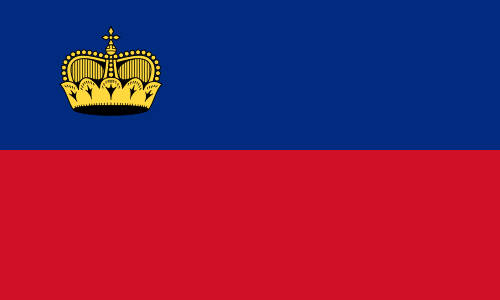Liechtenstein is a small yet prosperous country with a blend of traditional Alpine culture and modern economic success. It continues to evolve, balancing its role as a global business hub with a commitment to environmental conservation and cultural heritage.
List of Bank Holidays and Public Holidays in Liechtenstein for the year 2024
- New Year’s Day – Monday, 1 January 2024
- Epiphany – Saturday, 6 January 2024
- Candlemas – Friday, 2 February 2024
- St. Joseph’s Day – Tuesday, 19 March 2024
- Easter Monday – Monday, 1 April 2024
- Labour Day – Wednesday, 1 May 2024
- Ascension Day – Thursday, 9 May 2024
- Whit Monday – Monday, 20 May 2024
- Corpus Christi – Thursday, 30 May 2024
- National Day Lichtenstein – Thursday, 15 August 2024
- Nativity of Our Lady Mary – Sunday, 8 September 2024
- All Saints’ Day – Friday, 1 November 2024
- Immaculate Conception – Sunday, 8 December 2024
- Christmas Day – Wednesday, 25 December 2024
- St. Stephen’s Day – Thursday, 26 December 2024

History
- Early History: The area of present-day Liechtenstein has been inhabited since the Neolithic period. It gained its current borders in the early 18th century.
- Principality Formation: Became a sovereign state in 1719, named the Principality of Liechtenstein. It was a member of the German Confederation and later became closely associated with the Austro-Hungarian Empire.
- Modern Era: Maintained neutrality during both World Wars. Post-World War II, Liechtenstein saw significant economic growth and development.
Geography
- Location and Terrain: One of the world’s smallest countries, located in Central Europe, bordered by Switzerland to the west and south and Austria to the east and north. Known for its alpine landscapes, the country is predominantly mountainous.
- Climate: Alpine climate with mild summers and cold winters.
Culture
- Cultural Blend: Reflects influences from its German-speaking neighbors, with a unique blend of traditional Alpine culture and modern elements.
- Arts and Traditions: Rich in cultural traditions, including music, dance, and craftsmanship. The country has its own distinct cuisine, influenced by Swiss and Austrian flavors.
- Festivals and Events: Hosts various cultural events and festivals, celebrating its heritage and community spirit.
Economy
- Financial Services and Industry: Despite its small size, Liechtenstein has a highly prosperous, diversified economy with a strong focus on financial services, manufacturing, and high-tech industries.
- Tax Haven and Business Hub: Known as a tax haven due to its low corporate tax rates, attracting numerous multinational companies.
- Innovation and Sustainability: Invests heavily in research and development, with a focus on innovation and sustainable practices.
Society
- Population: A small population comprising Liechtensteiners, along with Swiss, Austrians, and Germans. The majority of the population is Roman Catholic.
- Languages: The official language is German, with local Alemannic dialects also spoken.
- High Standard of Living: Boasts a high standard of living, with extensive social welfare systems, excellent healthcare, and a well-developed education system.
Environmental Initiatives
- Environmental Protection: Committed to environmental conservation, with efforts to preserve its natural landscapes and biodiversity. Emphasizes sustainable development and renewable energy.
- Natural Beauty: Offers picturesque landscapes, including the Rhine Valley and Alpine regions, which are popular for hiking, skiing, and nature observation.
Government and Politics
- Constitutional Monarchy: Operates as a constitutional monarchy with a parliamentary system. The Prince of Liechtenstein is the head of state with significant political influence.
- International Relations: Although not a member of the European Union, Liechtenstein participates in the European Economic Area and the Schengen Agreement.
Tourism
- Tourist Attractions: Attractions include Vaduz Castle (the Prince’s residence), museums, vineyards, and historical villages. Winter sports and hiking are popular activities.
- Cultural Tourism: Offers rich cultural experiences, including art galleries, music performances, and culinary tours.

